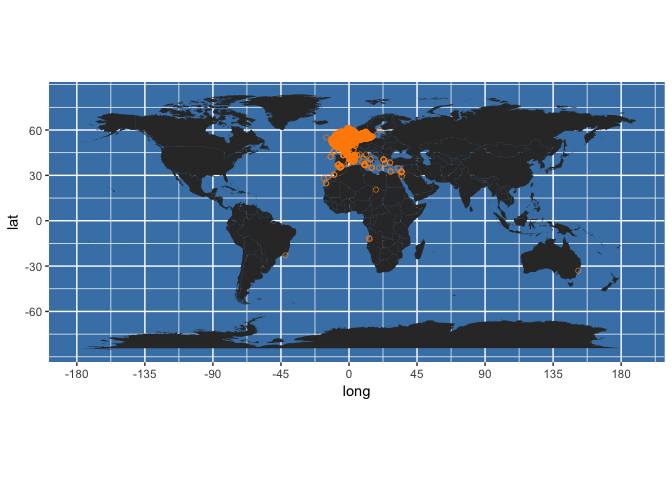
Programmatic access to biodiversity data is revolutionising large-scale, reproducible biodiversity research. In the marine realm, the largest global database of species occurrence records is the Ocean Biogeographic Information System, OBIS. As of January 2017, OBIS contains 47.78 million occurrences of 117,345 species, all openly available and accessible via the OBIS API.

